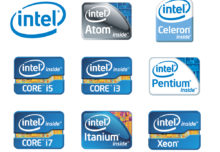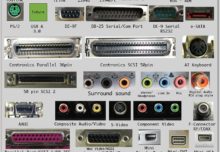Although some of us are old enough to remember when you had to handwrite all of your schoolwork, those times are very much behind us now. Compact enough to carry with you, yet versatile enough to run demanding applications, a laptop is the now best tool for doing serious schoolwork or play at home or on the road.
Whether you’re a parent shopping around for your child, a student looking to kickstart your higher education course or something in between, finding the right kind of laptop can often be a trial in itself. With so many models out there, it’s hard to know where to start. Here are six things to think about before taking the plunge.
Every curriculum is not equal, and that’s especially true of their IT demands. The type of laptop you need depends on how you’ll be using it.
You don’t need a powerful device purely for word processing, but you’ll need something more powerful if you’re doing any design or multimedia work.
If you can afford a multi-core Core i7 processor, 8GB of RAM and a 500GB SSD, then go for it. If not, you need a minimum of 4GB RAM and if you can’t afford the larger SSD, then think about an external hard disk or cloud storage like Google Drive.
Home, lecture, library and coffee shop: a student’s laptop might do more miles than most, so don’t get stuck with a heavy computer.
Chromebooks are the affordable option, while a Microsoft Surface will be light and powerful, but expensive. Some laptops are also 2-in-1 models that can flip into tablet mode for sketching or enjoying your downtime – consider the Lenovo Thinkpad Yoga 11e, it’s powerful and multitasks with ease.
The downside of ultralight laptops is a lack of connections – you may need to invest in an adaptor.
Often a super-powered laptop isn’t necessary – basic homework and entertainment needs won’t take up too much space or processing power. We have a rough guide:
- Intel Core i3: Great for everyday computing – use Microsoft Office, surf the web and watch videos
- Intel Core i5: Run Adobe Photoshop or Illustrator. Multitask with Spotify, web browsing and Word simultaneously
- Intel Core i7: Heavy-duty creative work such as 3D modelling and advanced video editing
- Intel Core i9: High-end content creation – runs demanding creative programs and always for virtual reality game play
Windows is familiar and easy to use whether browsing the web or using Word. Plus, it works on laptops from numerous manufacturers so you can choose features like 2 in 1 or tablet mode models to suit you.
Mac OSX only runs on Apple laptops and desktop computers – its intuitive design is easy to use. And if you or your child already has an iPhone or iPad then the two will sync neatly together.
Chrome is built around Google’s online services, work is done using online apps, then saved safely online. It’s only available on lightweight Chromebook laptops.
What you gain in portability, you usually lose in screen size, unless you spend a lot of money on an ultra-light laptop.
Will the laptop be used for fun and games as well as hard work? Then they’ll want one with a high-resolution screen. Go for maximum number of pixels – the more pixels, the better the picture and the higher the resolution.
However, the size of the screen doesn’t translate directly to the amount of pixels – you can have a big screen with less pixels, or a smaller screen with better resolution.
A student’s laptop isn’t just a workhorse, it’s got to power your free time too: streaming video, downloads, music and a little gaming.
What does this mean for your options? Consider screen size and quality, and enough processing power to play back Full HD (or even 4K video files), and to give you edge in an online battle.
If you can’t find a package with good speakers think about pairing with a small soundbar or good headphones.




